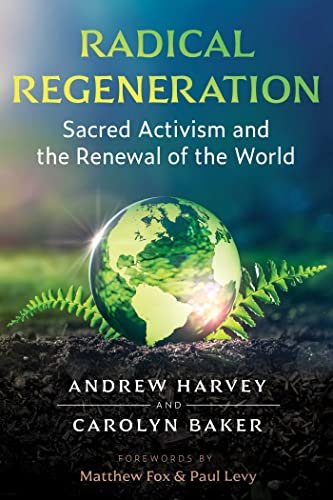In biology, regeneration is a process by which an organism cut into several pieces is able to re-grow each of those parts to their original state. Planarian flatworms are famously proficient at regenerating themselves after almost every kind of injury using specialized cells called stem cells. Every species is capable of regeneration to some degree, from bacteria to humans, but none so completely as flatworms.
The “radical regeneration” in this text refers to the world as a whole, and its ecosystems. Facing climate change and its impending consequences, the world as we know it may suffer injuries comparable to the dissected flatworm: drought, famine, plagues, economic collapse, violence, and more.
Restoring order to a broken ecosystem is the business of radical regeneration through permaculture, sustainable agriculture, eliminating fossil fuels, local food systems, sacred activism, and more.
Co-authors of Radical Regeneration Andrew Harvest and Carloyn Baker state: “We believe that what is required by our predicament is that we become warrior/midwives, uniting in our being the wisdom of the serpent and the innocence of the dove and continue to act in whatever circumstances that arise with rigor and compassion.”
